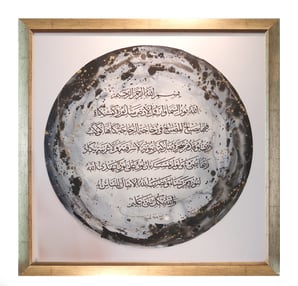EDUCATING AND INSPIRING COMMUNITIES TO EMBRACE CULTURAL HERITAGE
We understand the significance of research and archival journals; and the role they play in painting a shared historical story. Archives is significant, holding our collective history and cultural legacy of our society as they provide proof of events and reveal additional information about individuals and communities. They also enhance our feeling of self-identity and knowledge of diverse cultures; and are crucial in helping cultures and communities in preserving their identity. It is for these reasons they are considered a cultural monument. Primary sources found in archives assist individuals or groups in understanding their history and collective experiences. Personal documents, photographs, and governmental records all contribute to revealing the origins of individuals and groups - helping to tell the story of where people have come from.
We explore journals and research to look into the past, and tell deeper stories that inspire.
Highlighting the past, present, and future for the preservation of heritage and culture


Our heritage provides insights into our history and how our culture has changed over time. It allows us to explore our past and customs, fostering a deeper understanding of ourselves, and helps us cultivate a sense of self-awareness. It assists with comprehending and clarifying the reasons behind who we are. Cultural heritage is the backbone of every nation, it is essential in shaping lives and history as it impacts values, beliefs, and the sense of belonging. It acts as a source of motivation and innovation, offering a space for creative expression and sharing of culture. At Our Cape Town Heritage, we are committed to protecting and upholding heritage and culture; safeguarding the history of different cultures, challenging stereotypes, and encouraging conversations between communities through interactive exhibitions.
Certain dangers arise when cultural heritage is destroyed or lost. When cultural heritage is jeopardized, it weakens a community's ties to its history, interrupts the passing down of customs and knowledge, and eliminates the visible and invisible symbols of its identity. It can result in individuals and communities experiencing feelings of disconnection, alienation, and diminished cultural pride. Heritage loss and cultural erosion endangers our capacity to acquire knowledge, to create memories, and to utilize the teachings from history in the present and future.
With this in mind, our goal is to help artists share their rich cultural heritage stories, allowing them to tell unique stories through art. We are committed to offering the support they need to bring their narratives to life, making sure their voices are heard in their creations. By doing this, we play a role in preserving heritage and culture, ensuring that these vital legacies endure over time. We strive to build a lively platform where artists can flourish and their cultural tales can be highlighted. By promoting their work, we encourage a greater understanding and appreciation of the diverse backgrounds that shape our world, celebrating the beauty of cultural expression in every form.
OCTH educates and opens a dialogue for communities through accessible art that fosters cultural understanding through emphasizing the distinct customs, places, traditions, and values of diverse heritages. Using visual storytelling to share the core of cultural backgrounds, providing audiences with insights into different ways of life and positively impacting communities by honouring the past.
Cultural heritage preservation is a joint effort that requires participation from individuals, communities, governments, and international organizations. Properly documenting cultural artifacts, traditions, and historical sites is crucial. This involves documenting spoken histories, cataloging artifacts, and creating digital archives. Promotion of awareness and comprehension of cultural heritage through education is essential. Education initiatives, and cultural activities contribute to increasing public awareness about the significance of preservation.
Communities want their stories told on their own terms and to be shared in their own way; creating a repository helps to preserve history, enabling its narration and interpretation. OCTH understands that communities yearn to have their history and meaningful cultural heritage stories told.
















